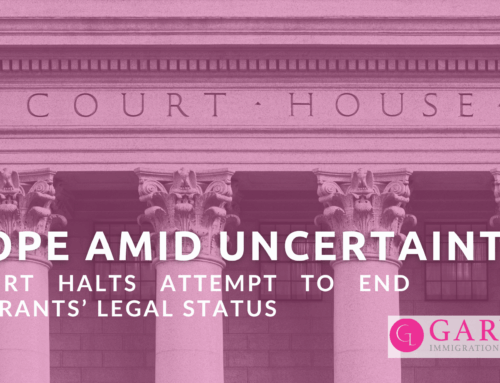On August 22, 2025, U.S. Citizenship and Immigration Services (USCIS) issued a new policy memorandum (PM-602-0189) that quietly but significantly changes the naturalization process. For the first time in decades, USCIS will resume “neighborhood investigations” for citizenship applicants, as required under Section 335(a) of the Immigration and Nationality Act (INA).
For many years, these investigations had been waived in practice, replaced by FBI fingerprint and background checks. Now, USCIS is going back to the statute and that means applicants need to be prepared.
What Are Neighborhood Investigations?
It is exactly what you think. USCIS will be asking questions about naturalization applicants to neighbors and co-workers. Think of these investigations as USCIS’s way of double-checking that you are who you say you are and that you’re living the kind of life expected of a future U.S. citizen. These investigations can include:
- Verifying your residence and time in the United States.
- Checking into your good moral character.
- Evaluating your attachment to the Constitution and your disposition toward the “good order and happiness” of the U.S.
- Gathering information from neighbors, employers, or community members who know you.
Until 1981, naturalization applicants actually needed two witnesses to testify to their character. That requirement was dropped, but neighborhood investigations remained in the law. By the 1990s, they were mostly phased out. Now, they’re back.
What Has Changed Under the New Policy
- No more blanket waiver. In the past, USCIS essentially ignored the INA’s mandate for neighborhood checks. Now, that’s over.
- Case-by-case discretion. Officers will decide whether an investigation is necessary in each individual case, based on the evidence available.
- Proactive evidence matters. If applicants submit testimonial letters or community references up front, USCIS may decide that a neighborhood investigation isn’t needed.
What This Means for Applicants
If you’re applying for naturalization, don’t be surprised if USCIS asks for testimonial evidence, letters from people in your life who can vouch for your residence, character, and community ties.
Here are some practical steps:
- Gather testimonial letters early. Employers, neighbors, colleagues, community leaders or anyone who can attest to your good moral character and integration can help.
- Strengthen your community ties. Volunteer, participate locally, and document your involvement. These efforts may matter more than ever.
- Expect discretion. USCIS officers will decide whether to waive or require an investigation. Strong, well-prepared applications are the best way to avoid delays.
The Bigger Picture
At one level, this is about compliance with the INA. But at a deeper level, it reflects a renewed emphasis on citizenship as belonging. Naturalization is becoming a process where your life in the U.S. is measured not only by documents, but by people.
This change could create challenges, especially for applicants without strong local networks, but it also opens opportunities. Proactive storytelling, backed up by community voices, can be a powerful way to show USCIS who you are.
Final Thoughts
For immigrants dreaming of citizenship, this new policy is both a challenge and an invitation. It means extra preparation, but it also means that your community, character, and contributions truly count.
At Garvish Immigration Law Group, we’ll be working closely with our clients to navigate these changes, helping them anticipate requests, gather the right evidence, and present the strongest possible case for citizenship.
About the Author
Elizabeth Garvish
Elizabeth L.A. Garvish founded Garvish Immigration Law Group, LLC in 2011 after practicing immigration law in small boutique firms, big law and nonprofits. Elizabeth is a frequent speaker and presenter on entrepreneurship and U.S. immigration topics around the world. She is an active member of the American Immigration Lawyers Association (AILA) and serves on various national committees and is the Past Chair of the Georgia-Alabama Chapter of AILA. Elizabeth is also a certified member of the EO Global Speakers Academy.




